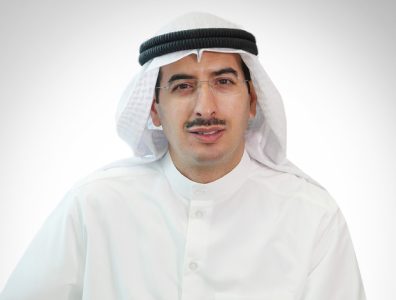Sheikh Ahmad Duaij Al Sabah, chairman of the Commercial Bank of Kuwait (Al-Tijari), talks to The Business dunes about supporting key energy and infrastructure developments and the positive impact of Kuwait’s new public debt law. Al-Tijari is a Kuwaiti bank that provides financial, banking and investment services to corporate and retail customers.
How would you assess the performance of Al-Tijari and Kuwait’s financial sector in the past year?
2024 was a record-breaking year for Al-Tijari, with the highest profits and revenues in the bank’s history. Our Q1 2025 results confirm continued strength. This achievement stems from our focus on our core business activities, our prudent risk management strategies and our forward-looking approach to participating and financing mega-projects launched by the government.
Furthermore, the launch of major capital-intensive projects by the government continued to give momentum to the positive cycle in the economy. As a leading private sector financial institution, we have been fully engaged in supporting them. Our role is to be an enabler, ensuring that these government-backed developments get the banking support they need to materialise. I’m optimistic this momentum will carry forward.
Other banks are also seeing growth. What is especially promising is that economic prospects are no longer tied exclusively to oil prices. The new public debt law is a game-changer. It gives the government room to maintain steady capital spending without being hostage to oil price fluctuations. That stability fosters growth. We believe we are at the beginning of a sustained economic upswing.
What would you say are the standout energy developments in the past 18 months?
The oil sector is booming, with new offshore agreements with Saudi Arabia, important discoveries and new gathering centres coming online. We are also seeing major infrastructure advances, including new housing developments, the Al Zour power projects and progress at the Umm Al Hayman Wastewater Treatment Project.
In the power sector, there is a push toward renewable energy, with around 2.6 GW of solar slated to come on line by 2026. These projects all require funding and technical support, and we have played a role in nearly every one that is ongoing, usually through syndicated loans with other banks.
We work very closely with both the public and private sectors. We engage directly with ministries and project developers to understand their financing needs and provide bespoke banking solutions. Our support aligns with the objectives of Kuwait Vision 2035, which aims to transform the country into a regional financial and commercial hub.
The volume of projects in Kuwait and the dynamic approach of the current government are both incredibly encouraging. There is a level of ambition and determination across ministries that we haven’t seen in years. In this positive context, our executive team is lean, focused and ready to deliver.
What projects is Al-Tijari targeting in the oil and gas sector?
We provided financing for the Al Zour Refinery and have a track record of supporting major projects in Kuwait. Large-scale developments always require multiple banking partners, and we continue to play an active role.
Offshore discoveries are one of the newer frontiers for Kuwait, and we support the companies involved with various services and types of financing. It’s not about targeting a specific project, but about supporting the entire economic system. We are an aid to the government and to the companies that participate in energy ventures.
Offshore drilling is new terrain for most Kuwaiti firms. They are building up their capabilities with both local and international expertise, and our role is to help them scale quickly by ensuring financing is in place. We support feasibility studies and risk analyses, and we work with companies to match financial tools with project needs. We are also devoted learners – we grow alongside our partners.
How do you assess Kuwait’s renewable energy sector, and how is your involvement in it evolving?
Renewables will be central to Kuwait’s future energy mix. Given our high electricity usage in the summer and solar generation potential during the same period, building solar infrastructure makes strategic sense. Wind will also have a growing role. The ministers are working hard to bring best-in-class solutions into Kuwait, and we will be ready to finance energy transition efforts.
When Phase II of the Shagaya Renewable Energy Project takes off, we will definitely compete. We were lead financiers for the Umm Al Hayman Wastewater Treatment Project, and we will bring that expertise forward.
The key is flexibility. We tailor financing terms to match each project’s revenue cycles and operational milestones. Our role is to enable the PPP participants to succeed by offering financial packages that align with the realities of long-term infrastructure development.
How is Al-Tijari adapting to the rise of fintech?
The advance of fintech keeps the banking industry on its toes. We aim to offer the best services to our clients, be they retail or corporate. Ultimately, all Kuwaiti banks are trying to serve the same pool of customers and deliver the best possible experience. Competition drives innovation and prevents complacency.
What’s your long-term vision for Al-Tijari, and what legacy do you want to leave?
Al-Tijari has long been a dependable and flexible partner in financing Kuwait’s development mega-projects. Al-Tijari is instrumental in achieving national goals. As such, we aspire to further enhance our position as a leading financier and cascade our contribution to Kuwait’s transformation and the economic progress of the GCC. Then everything else – profits, returns, reputation –will surely follow.


